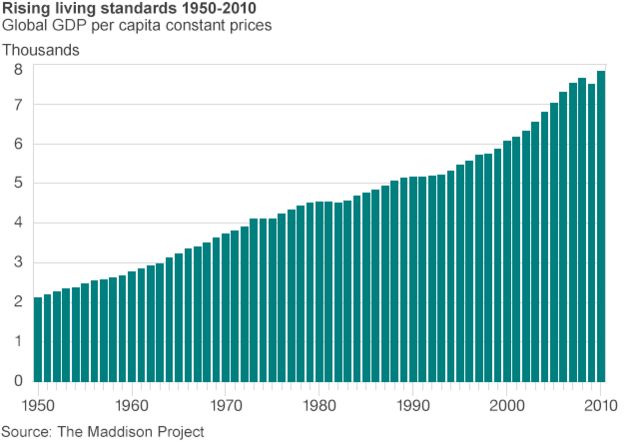the progress we have been experiencing over the years has allowed us to generally increase our production quantity thanks to a demand increasingly high against a consumer less demanding.
However, from a material point of view, people tend to estimate that despite a visible increase in production, the quality of the product keeps falling in return.
Otherwise from a human point of view this growing economy has direct social impacts on the populations concerned, especially in so-called "developed" countries but also in developing countries, which have, for example, led to a semblance of social stability.
Indeed, it can be seen from this graph that from the second half of the 20th century to more or less today, the living conditions of the world population have actually spectacularly increased.
This progress is essentially due to our capitalist society which has made it possible to increase the incomes of the already well-off populations to the detriment of those in need.
However, this second graph clearly shows the increase in inequality that has occurred over these lasts 50 years.
Basically, contrary to what one might think, the standard of living of other countries hasn't decreased because their situation improves over the years except for the countries at war.
But this evolution remains insignificant compared to richest countries and many of them tend to stagnate in their development being overtaken by its neighbors, which only increases the economic gap between the countries.
I chose to focus on the social-economic aspect of the problem of quantity and quality because it is something that keeps growing because our personal development always produces harmful effects whether on our environment or our congeners.
To conclude, the quality could be summarized as a certain equality that could be achieved provided that we reduce or share the quantity available to us.


excuse me for the delay sir i came home late
ReplyDeleteOK, Leon. A very interesting post indeed.
ReplyDelete